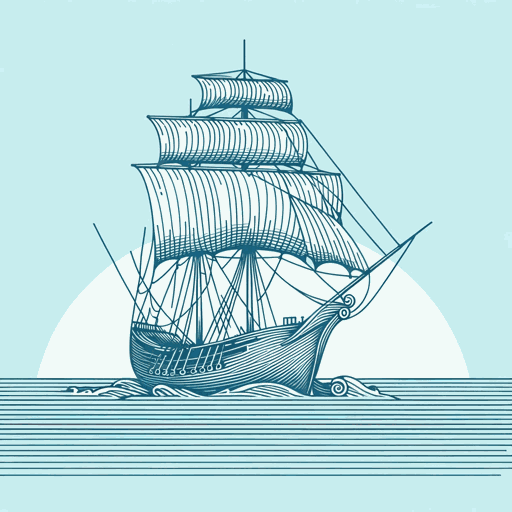98 pages • 3 hours read
Bernard EvslinThe Adventures of Ulysses
Fiction | Novel | YA | Published in 1969A modern alternative to SparkNotes and CliffsNotes, SuperSummary offers high-quality Study Guides with detailed chapter summaries and analysis of major themes, characters, and more. For select classroom titles, we also provide Teaching Guides with discussion and quiz questions to prompt student engagement.
Summary and Study Guide
Overview
In 1969’s The Adventures of Ulysses, American author Bernard Evslin presents a prose version of Homer’s epic poem The Odyssey, the 10-year wanderings of Greek warrior Ulysses—also known as Odysseus—and his men as they struggle to sail home from their victory in the Trojan War. They encounter angry gods, fiendish monsters, beautiful sorceresses, storms, death, and a visit to the underworld.
Playwright and author Evslin wrote more than 70 books, including two dozen works on ancient mythology, many of them aimed at juveniles and young adults. He won several writing awards, and his book Heroes, Gods and Monsters of the Greek Myths sold 10 million copies in 10 languages.
Plot Summary
Ulysses, king of Ithaca, is a commander in the Greek army that attacks the walled city of Troy, where beautiful queen Helen, stolen from Greece by the Trojan prince Paris, now resides. For 10 years the Greeks contest the battle, and many great warriors die on both sides. Ulysses fights bravely and keeps his side organized and in good spirits. He also devises a ruse—a giant statue, the Trojan Horse—that the Trojans allow into the city, thinking it a Greek religious offering that they can besmirch. Inside the statue, however, hide Ulysses and his men, and late that night, they climb out, open the gates to the Greek army, and defeat the city.
Longing for home, Ulysses launches three ships with 150 men, and they sail for the island of Ithaca, where Ulysses’s wife Penelope and son Telemachus await him. After strong winds push them south, the fleet lands on an island occupied by the Cyclopes, one-eyed giants. The largest and fiercest, Polyphemus, traps the men in his cave and begins to eat them, but Ulysses convinces the monster to drink some wine with the meal. Polyphemus gets drunk and falls asleep; Ulysses drives his sword through the giant’s glowing red eye, and the men hide among the giant’s herd of oversized goats. Polyphemus tries to find them, but they escape by hanging under the goats as the creatures clamber out of the cave. The men escape to their ships; as they sail away, Ulysses taunts Polyphemus, who prays to his father, the sea god Poseidon, asking for revenge. Poseidon grants the request and begins plotting against the fleet.
Next, they sail to the island of the god Aeolus, Keeper of the Winds, who hosts them to a feast and listens raptly as Ulysses tells stories of their adventures. Aeolus awards Ulysses with a bag of winds to help him on his return home. The fleet sails forth and soon approaches Ithaca, but Poseidon tricks the crew into opening the bag of wind at the wrong moment, which pushes the fleet far away from home.
The wanderers find an island cove where they can repair their ships. Trees near the beach turn out to be sleeping giants, who, disturbed by the men, awaken and attack, eating them and destroying two of their ships. Ulysses escapes with less than a third of his men.
Needing food and water, they stop at a forested island where giant deer roam and a strange hilltop castle emits eerie sounds. Ulysses’s sailors enter the castle, where a beautiful woman sings sublimely while weaving a magnificent tapestry. She welcomes the sailors, and her servants bathe and clothe them. She feeds them a delicious porridge, but it turns them into pigs, and she herds them to a pig sty. She is Circe, a sorceress and immortal daughter of the gods who likes to change men into animals, some of whom she feeds to other guests.
Worried about his squad, Ulysses hikes to the castle. On the way, he meets the god Hermes, who informs him of Poseidon’s vendetta and offers him help. He gives Ulysses a flower that will protect him from Circe’s drugged food, and he counsels that, to survive, Ulysses must force Circe to promise she won’t hurt him. At the castle, Ulysses eats the food, but it has no effect. He grabs Circe and demands she promise not to harm him. Her psychic powers are so great, though, that he falls deeply in love with her and promises to live with her if she will protect him and return his men. She falls for him as well, and everyone lives in the castle for a long time, enjoying feasts, games, and entertainment.
Ulysses learns that the wolves and lions on the castle grounds are Circe’s past husbands. She plans to turn him into a fox when he grows old. He wants to stay but remembers his promise to return his men to their homeland. Circe tells him that the gods have decreed he must visit the Land of the Dead to receive prophecies from ghosts.
The ship sails west and soon is lost for days in perpetual darkness. The ship lurches downward onto a river that descends into the gray light of a black world, the Land of the Dead. They drop anchor and walk to a meadow, where the ghosts of Ulysses’s mother Anticleia, his late warrior companion Achilles, and the oracle Teiresias warn him of dangers to come and how to evade them.
The men return to the upper world and continue their voyage. They try to avoid the looming dangers but floating rocks block them. They must sail past an island guarded by the Sirens, two witches shaped like birds who lure men to their death with beautiful singing. Ulysses plugs his men’s ears with wax and has them tie him to the mast so he can hear the threat. When their music floats across the sea to him, he goes insane, breaks his bonds, and tries to jump overboard, but his men restrain him.
The sailors land on the island of Thrinacia, or Sicily, where the god Hyperion herds his golden cattle. The men must not eat the cows, but winds keep them marooned and they begin to starve. Deciding that they’d rather die some other way than starvation, the men kill and roast six cows and feast on them. The wind changes, they sail away, and Poseidon punishes them by smashing the ship in a storm. Only Ulysses survives.
He lands on a beautiful, forested island owned by Calypso, a tall demigoddess who enchants him and makes him her mate. As with Circe, Ulysses enjoys their time together, but she, too, turns her husbands into animals, and he must return to Ithaca, so she relents and gives him a boat. He sails toward home but once again is thwarted by Poseidon, who destroys the boat and leaves Ulysses to drown. He’s saved by Ino, a nymph who hates Poseidon and loans Ulysses her veil, which helps him swim quickly.
Ulysses reaches Ithaca. He disguises himself as an old beggar and visits his swineherd, Eumaeus, who is kind to him. Ulysses’s son, Telemachus, reunites with him. The three men plot to retake the castle. Disguised as the beggar, Ulysses talks to Penelope, saying he knew her husband, who wanted her to choose a suitor who can string his bow. She follows the advice, holds an archery contest, and, when none can bend the bow, Ulysses appears, strings the bow easily, and shoots a single arrow through all the lined-up targets.
The suitors attack; Ulysses arrows most of them and, with his cohorts, kills the rest in hand-to-hand combat. Home at last, Ulysses reclaims his kingdom and rejoins his queen.








Related Titles
By Bernard Evslin

